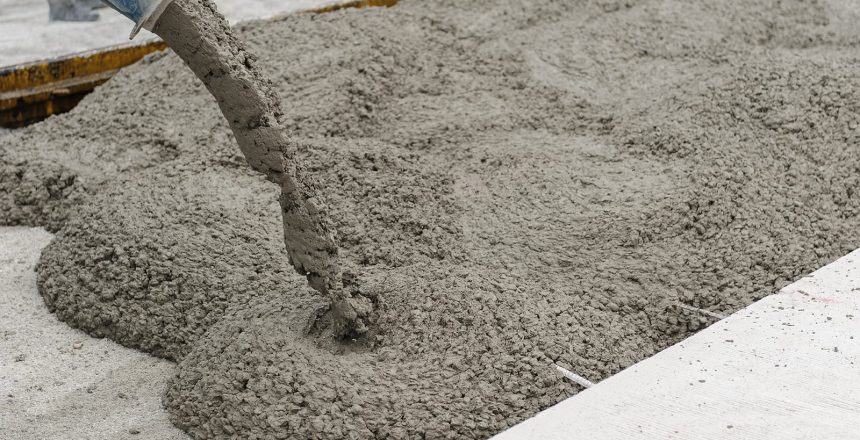Unveiling the Eco-Friendly Advantages of Making Use Of Recycled Concrete in Lasting Construction Practices
In the realm of lasting building techniques, the usage of recycled concrete stands as a crucial yet usually underestimated resource. Past its standard applications, recycled concrete deals a myriad of green advantages that extend far past the confines of traditional construction materials. From reducing ecological influence to enhancing cost-efficiency, the ramifications of including recycled concrete in sustainable building methods are substantial. This flexible material not just addresses pushing environmental worries but also presents a sensible remedy to the obstacles dealt with by the building sector at huge.
Ecological Advantages
Undoubtedly, among one of the most substantial advantages of making use of recycled concrete is its positive effect on the environment. By integrating recycled concrete right into building and construction methods, there is a considerable reduction in the demand for brand-new basic materials, resulting in conservation of natural deposits. This process aids in preserving accumulations, water, and energy that would certainly have been utilized in generating new concrete. Furthermore, using recycled concrete decreases the quantity of waste being sent out to landfills, consequently decreasing environmental pollution and minimizing the strain on garbage dump capabilities.

In comparison, recycled concrete has a lower carbon footprint as it lowers the demand for new concrete production. Overall, the ecological benefits of making use of recycled concrete are substantial and play a vital duty in promoting green building and construction methods.
Cost-Efficiency
When assessing the utilization of recycled concrete in construction jobs,Attaining cost-efficiency is a critical factor to consider. One of the key benefits of utilizing recycled concrete is its cost-effectiveness compared to traditional concrete. The production of recycled concrete includes much less power and resources as it utilizes existing materials, minimizing the overall job costs considerably. Additionally, the accessibility of recycled concrete in your area can additionally decrease transportation expenditures, making it a more cost-effective selection for building projects.
Additionally, using recycled concrete can cause cost savings in garbage dump costs by drawing away concrete waste from disposal websites. This not only lowers the environmental effect yet also removes the costs related to waste elimination. Additionally, the sturdiness and efficiency of recycled concrete approach traditional concrete, making certain that cost financial savings do not compromise the high quality of the building and construction.
Sturdiness and Strength
Recycled concrete deals equivalent, if not superior, longevity and toughness residential or commercial properties to standard concrete - Concrete. Via advancements in processing techniques and quality control, recycled concrete can satisfy or go beyond the efficiency criteria of traditional concrete.

Waste Decrease
When it comes to making use of recycled concrete, waste reduction is a vital advantage that contributes substantially to environmental conservation. By incorporating recycled concrete right into building tasks, this waste is repurposed and diverted from garbage dumps, lowering the overall environmental impact of construction tasks.
Recycled concrete not only aids in lessening the amount of waste click for source that winds up in land fills however also saves all-natural sources by lowering the need for new aggregate materials. This process of waste decrease promotes a round economy within the building and construction market, where products are recycled and reused to produce a more sustainable industry. Furthermore, using recycled concrete can cause cost financial savings for building and construction tasks, as it is commonly a lot more budget-friendly than sourcing and carrying brand-new products. To conclude, waste decrease via the application of recycled concrete is an important part of lasting construction methods that profits both the building and construction and the environment industry as a whole.
Power Preservation
When it comes to making use of recycled concrete in building and construction, substantial energy cost savings are attained contrasted to typical concrete production. The procedure of creating recycled concrete entails crushing and reusing existing concrete materials, which takes in less energy than mining, processing, and delivering raw products for brand-new concrete production.
Conclusion
In conclusion, the usage of recycled concrete in sustainable building and construction practices supplies various ecological advantages, cost-efficiency, longevity, stamina, waste reduction, and energy preservation. By including recycled concrete right into building tasks, we can add to website link a more lasting and eco pleasant future. It is important for the building and construction market to focus on using recycled materials to help minimize the ecological impact of construction tasks.
One of the vital benefits of using recycled concrete is its cost-effectiveness compared to conventional concrete.In addition, the use of recycled concrete can lead to financial savings in garbage dump expenses by drawing away concrete waste from disposal websites. The resilience and efficiency of recycled concrete are comparable to conventional concrete, making sure that price savings do not jeopardize the top quality of the building and construction.
